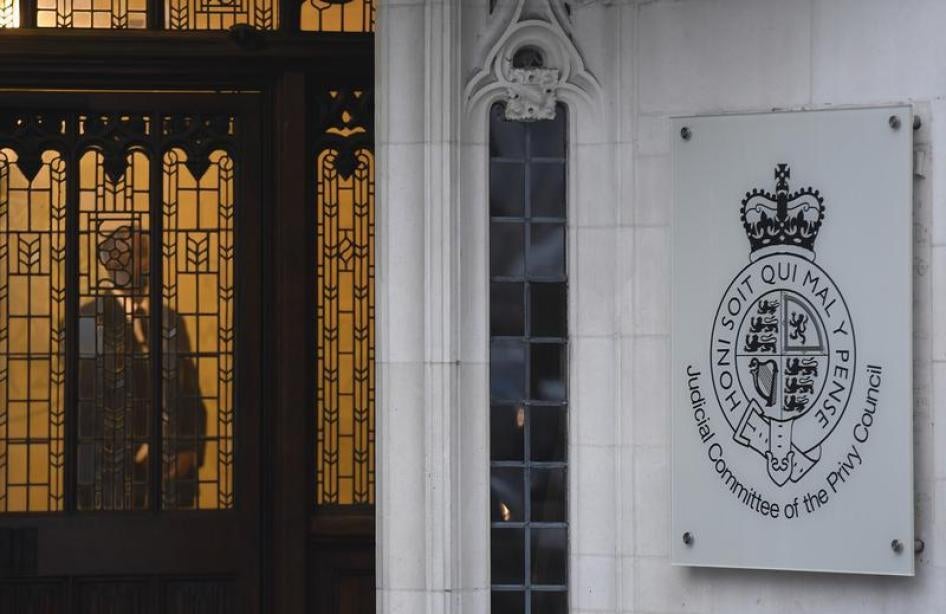Last week, the United Kingdom Supreme Court delivered several key rulings about the application of human rights protections to British military detention overseas and accountability for alleged involvement of British forces in torture in Iraq, Afghanistan, and Libya. The rulings are mixed in terms of ensuring the rule of law and prevention of torture.
The most powerful ruling related to efforts by alleged victims of torture and abuse – Abdulhakim Belhaj, Fatima Boudchar, and Yunus Rahmatullah – to sue the British government and officials over their alleged role in the abuse. The government had tried to block those efforts, arguing it would involve courts ruling on the acts of other states.
Belhaj and Boudchar sued former Foreign Secretary Jack Straw and UK officials over the alleged role of the UK government and the intelligence agency MI6 in their kidnap in Kuala Lumpur in 2004, and rendition (transfer) by the United States Central Intelligence Agency to Libya, then ruled by Muammar Gaddafi. They have described abuse amounting to torture while being detained in Libya. Documents found by Human Rights Watch in Tripoli in 2011 strongly suggest UK state involvement in their rendition. Rahmatullah was detained by British forces in Iraq and handed over to US forces, who transferred him to Bagram detention center in Afghanistan, where he was detained without charge for 10 years, and, he alleges, abused.
In a powerful decision, the Supreme Court ruled that both cases could go ahead, dismissing claims of “act of state” immunity – a legal doctrine that protects governments from liability for their actions. One judge, Lord Sumption, said that such immunity should not apply to alleged violations of fundamental provisions of international law, including the bans on torture and arbitrary detention.
The Supreme Court’s ruling in a separate case about military detention was less positive. The case was brought by Serdar Mohammed, who was detained by British forces in Afghanistan in 2010. Mohammed alleged the UK had no legal authority to detain him. The court ruled that the legal authority to detain could be implied by a United Nations Security Council resolution, even though that resolution gave no explicit detention powers to states.
The Serdar Mohammed ruling could lead to states trying to justify detention by their armed forces during civil wars abroad on vague grounds. A strong dissent by Lord Reed explains the need for powers granted to states to detain to be explicit and set out in law. Every detainee – and those detaining them – should be able to know the reasons for their detention. Reed and several other judges rejected the argument, made by the UK government, that their forces can detain people in civil wars under vague implied powers under the laws of war.
Importantly, the court did rule that those detained by the British military were entitled to challenge their detention – and that the UK authorities had denied this right to Mohammed.
Belhaj and Boudchar now have a chance of justice in UK courts, unlike the US where until recently all CIA torture cases have been blocked by the state secrets privilege, which prevent torture allegations from even being raised. But successive British governments seem determined to fight protracted legal battles at great expense, rather than actually address the abuses that their predecessors condoned, including arbitrary detention and aiding in rendition to torture. The UK government should now finally allow a public reckoning on its predecessor’s involvement in rendition to torture; and pass laws to ensure all future detention overseas is subject to clear law, including the right of detainees to effectively challenge their detention.
Human Rights Watch, Amnesty International, the International Commission of Jurists and the Open Society Justice Initiative were interveners in the Serdar Mohammed case.










